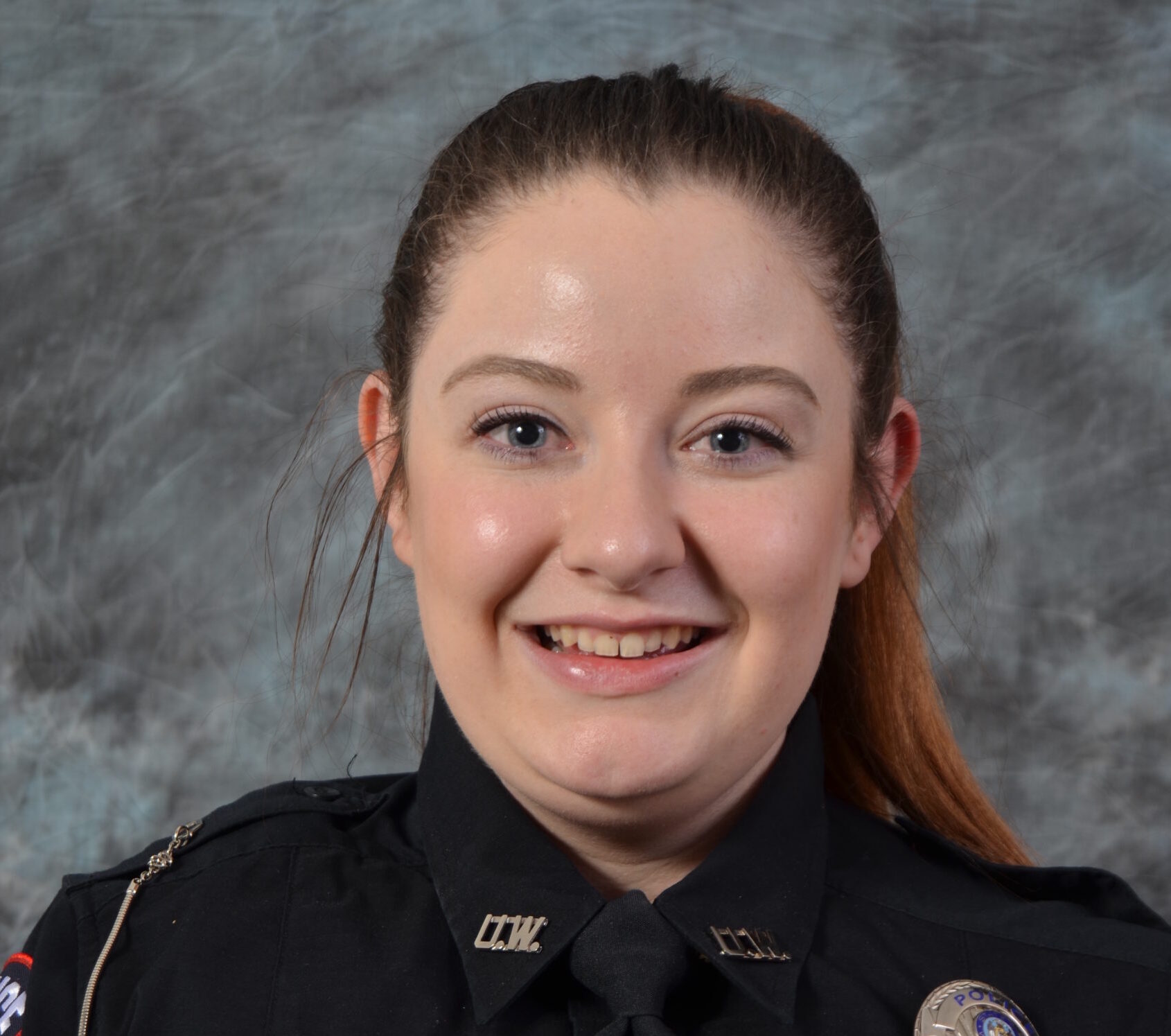Officer Katelyn Gamache
University of Wisconsin-Madison Police Department
Madison, Wisconsin

Q: Why did you become a police officer?
Along with every police officer who wants to protect their community, I wanted to become integrated into my community and solve the issues I saw in the criminal justice system. Growing up I didn’t have any family members in law enforcement or even know any of the local cops. I unfortunately didn’t have much of a mentor or role model growing up when I saw other kids growing up who had one. I decided from a young age that I wanted to be the role model in the community I didn’t see and knew I got extreme joy from assisting anyone with their problems. When I got older, I saw the deep issues that the entire criminal justice has, but understood the benefits of having the system in place. I wanted to work with the community and people who were passionate about helping people to be a part of the solution.
Q: What motivates you to succeed?
The community I serve motivates me to succeed every day. I don’t do my job for me. I do it for everyone in the community. A lot of people I interact with are having one of the worst days of their lives and don’t want to be in contact with the police. Even in the worst of situations, seeing the individuals I interact with go from having their worst days to their best days or even a slightly better day, makes the job worth it. I strive to be the best version of myself on and off the job in order to be able to help everyone I interact. That is what my community expects and deserves from me.
Q: What’s your most memorable moment on the job?
Most officers might state their most memorable moment on the job is a time when they were thanked or given an award for something they have done. I don’t have a specific one moment but most of my memorable moments involve when I sit with someone I would most likely not have met outside of my job and really get to know them. This usually happens when someone is having a really bad day and expresses something that needs to be reported to police, whether it be suicidal thoughts, a crime that was committed against them, or needing help with something they don’t know how to handle. I remember the faces of the individuals who were having these struggles. I was able to learn about their situations, personal details about their lives, and their wants/goals/interests. It is the most remarkable experience when I can see someone who is having a hard day and by the end of our interaction be in a much better place. Knowing and being able to visually see the change I can make in society is memorable-no matter how big or small.
Q: What challenges have you faced?
I had a lot of physical challenges due to previous injuries when I started this career. Once I made the decision that this was what I was meant to do there was nothing that could get me to deviate from my goals. Unfortunately, life had different plans and I had to have multiple invasive surgeries in order to do daily activities. This also came with doctors, family, and the public telling me that I would never be able to do the career I was so driven to do on top of the community and social stigma telling me that women won’t and can’t succeed. Various times I was questioned about what future I wanted, and my potential to be a good wife and mother. I was never seeing my male counterparts having any of these concerns or conversations with their peers. I pushed through all my physical challenges and mentally prepared myself that this career is one for my community but also one for me; I can help people I don’t know with any struggles they face, while also living the future I want in regards to a family.
Q: What advice do you have for women considering a profession in policing?
I would tell women considering a profession in policing or any position in the criminal justice system in general TO DO IT. Don’t listen to anything negative or any doubts that people bring up about you not being capable to do this career as a woman. You are strong enough. You are brave enough. You are enough of a leader. You are not any less of a women or family oriented person for choosing this career. This career was made for me and there isn’t a day I don’t regret it.
How we’re changing policing
The 30×30 Initiative is a coalition of police leaders, researchers, and professional organizations who have joined together to advance the representation and experiences of women in all ranks of policing across the United States.
Learn More